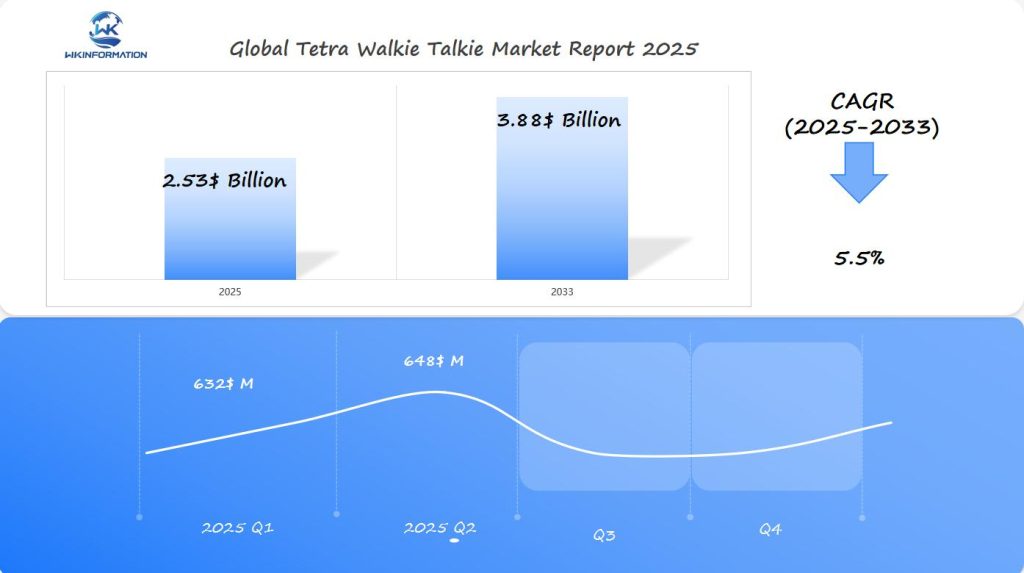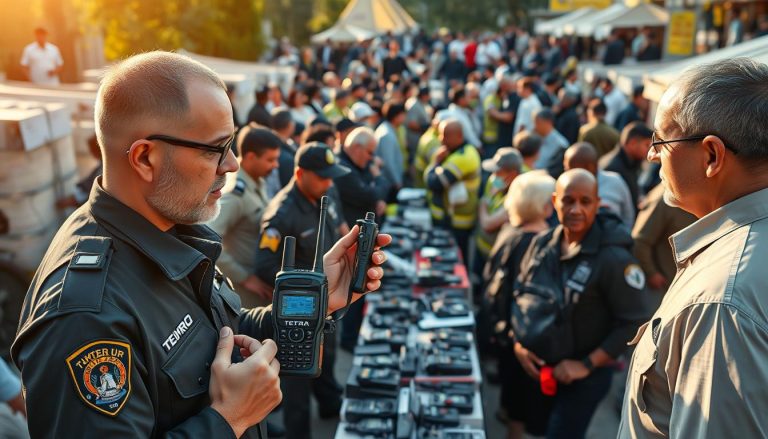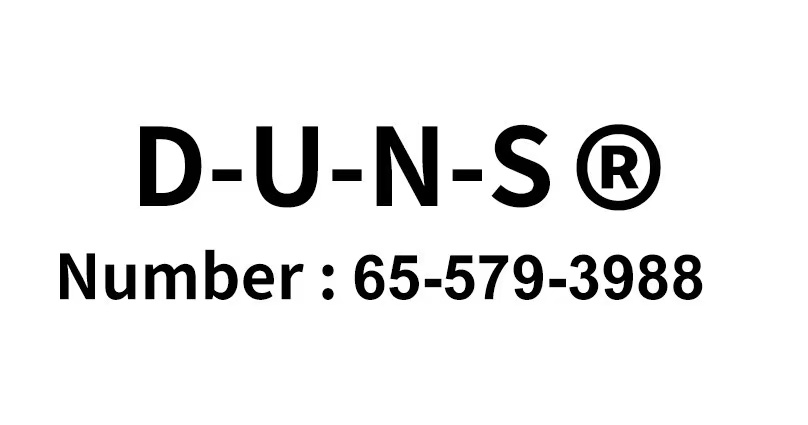$2.53 Billion Tetra Walkie Talkie Market Expands in 2025: U.K., France, and India Boost Public Safety Communications
The Tetra Walkie Talkie Market is projected to reach $2.53 billion by 2025, driven by rising public safety investments across the U.K., France, and India, enhancing emergency communications.
- Last Updated:
Tetra Walkie Talkie Market Q1 and Q2 2025 Forecast
The Tetra Walkie Talkie market is projected to reach $2.53 billion in 2025, with a CAGR of 5.5% from 2025 to 2033. In Q1 2025, the market is expected to generate approximately $632 million, driven by strong demand from sectors such as public safety, military, and transportation in the U.K., France, and India.
Tetra walkie talkies are widely used in emergency services and law enforcement, providing reliable and secure communication, which makes them essential for first responders. As public safety networks continue to expand and urbanization increases, the demand for advanced communication equipment will rise.
By Q2 2025, the market is expected to grow to $648 million, with India ramping up investments in emergency communications infrastructure and public safety services. The U.K. and France are also anticipated to continue deploying Tetra systems in security and transport sectors. Additionally, increasing use of walkie talkie solutions in the private sector, such as construction and hospitality, will drive growth further.

Key Takeaways
- The Tetra Walkie Talkie market is projected to be worth $2.53 billion by 2025.
- There is significant growth in communication technologies for public safety.
- U.K., France, and India are making strategic investments.
- The emergency and transportation sectors are increasingly adopting this technology.
- Digital radio communication capabilities are being enhanced.
Exploring the Upstream and Downstream Industry Chains for Tetra Walkie Talkies
The Tetra walkie talkie market is a complex web of industry chains. It connects manufacturers, components, and end-users. These devices are vital for public safety, transportation, and utilities. They need advanced manufacturing and smart distribution channels.
Looking into the manufacturing world shows us key parts for making top Tetra devices:
- Robust transceivers with advanced signal processing
- High-gain directional antennas
- Long-lasting rechargeable batteries
- Durable protective cases
Key Components and Manufacturing Processes
Making Tetra walkie talkies requires precise engineering and special production methods. Manufacturers aim to create reliable devices that meet high standards for performance and durability.
Distribution Channels and End-User Industries
Distribution channels for Tetra walkie talkies cover many areas, making them accessible for critical needs:
- Direct sales from manufacturers
- Specialized telecommunications distributors
- Government procurement channels
- Dedicated retail networks
End-user industries include a wide range of sectors needing strong communication solutions. These include emergency services, transportation networks, and industrial operations.
Key Trends Driving the Tetra Walkie Talkie Market: Growth in Public Safety and Private Sector Use
The Tetra walkie talkie market is changing fast. This is thanks to new trends and the need for better communication in many areas. Public safety and private companies are leading this change in mission-critical tech.
Market trends show how Tetra tech is quickly improving. The need for safe and reliable talk systems is driving growth in many fields.
Increasing Adoption in Emergency Services
Emergency services are a key area for Tetra walkie talkies. Important changes include:
- More reliable communication for first responders
- Better coordination in emergencies
- Stronger encryption for secure talks
Now, about 40% of the Tetra market is for public safety. This shows how vital Tetra is for emergency teams.
Expansion in Transportation and Logistics
Private companies are also boosting Tetra use in transport and logistics. They see the value in strong communication networks.
Utilities and rail transit make up another 25% of the market. This shows Tetra’s wide appeal across industries.
The future of mission-critical communications lies in seamless, secure, and efficient technology integration.
Challenges in Tetra Walkie Talkie Adoption and Infrastructure Development
The Tetra walkie talkie market has big hurdles to overcome, especially in developing areas. Companies face many obstacles when setting up and integrating these systems.
Several key factors make it hard for organizations to decide on Tetra walkie talkies. The main issues are:
- High initial costs
- Complex tech needs
- Need for specialized training
- Challenges in making systems work together
Cost Barriers and Implementation Complexities
Companies looking into Tetra walkie talkies face big financial hurdles. High upfront costs are a major turn-off. These systems need a lot of money for hardware, network setup, and special gear.
Interoperability Issues with Legacy Systems
Another big challenge is making new Tetra tech work with old systems. Teams must find ways to ensure all systems communicate with each other smoothly.
The success of Tetra walkie talkie adoption hinges on resolving infrastructure and interoperability problems.
To succeed, companies need to do thorough checks on system compatibility. They must plan carefully for technology updates and provide strong training to help with the change. This is where leveraging the right knowledge becomes crucial, as it drives innovation and facilitates smoother transitions in technology adoption.

Geopolitical Influence on the Tetra Walkie Talkie Market
The world of Tetra walkie talkie technologies is linked to many geopolitical factors. These factors shape how communication systems are built. Government rules are key in deciding which secure systems get used in different areas.
Big countries are spending a lot on public safety and emergency talks. This shows how important strong communication tech is for safety and keeping things running smoothly.
Government Regulations and Security Concerns
Countries worldwide are implementing strict regulations to ensure secure communication. Key factors driving the growth of the Tetra walkie talkie market include:
- Enhanced encryption for government communications
- Stringent regulations for emergency service conversations
- Guidelines for utilizing communication technology in matters of national security
Impact of International Trade Relations
Trade between countries also affects the Tetra walkie talkie market. Tensions and trade rules can mess with the global tech supply chain.
Governments see Tetra systems as key for national safety and public safety.
Big challenges in trade include:
- Dealing with complex rules for exporting tech
- Managing tech sharing limits
- Fixing issues with talking across borders
The mix of government rules, international trade, and new tech keeps changing the Tetra walkie talkie market.
Tetra Walkie Talkie Market by Type: Handheld and Vehicle-Mounted Devices
The Tetra walkie talkie market has two main types for different needs in public safety and work. Handheld devices and vehicle-mounted systems have special features for specific uses.
Tetra communication has changed how groups talk in emergencies. The market has two main types:
- Handheld devices
- Vehicle-mounted systems
Features and Applications of Handheld Tetra Devices
Handheld devices are the most flexible for work. They are small, easy to carry, and perfect for quick talks in changing places.
- Lightweight and ergonomic design
- Extended battery life
- Robust encryption capabilities
- Instant group communication
Advantages of Vehicle-Mounted Tetra Systems
Vehicle-mounted systems are great for teams on the move. They work well with other networks, giving better range and reliability.
- Broader signal transmission range
- Enhanced power capabilities
- Integrated GPS tracking
- Simultaneous multi-channel communication
Emergency services, transport, and industry use these devices for better communication.
Applications of Tetra Walkie Talkies in Emergency Services, Transport, and Industrial Operations
Tetra walkie talkies have changed how we communicate in many important areas. They help emergency services, transport, and industries talk clearly and safely. These systems are key for fast and reliable messages in urgent situations.
- Government and Public Safety: 40% market share
- Utilities and Rail Transit: 25% market share
- Industrial and Commercial Applications: 20% market share
Use Cases in Law Enforcement and Fire Services
Emergency teams use Tetra walkie talkies for quick talks in emergencies. Police and fire teams use them to work together fast, share where they are, and stay safe in tough situations.
Tetra in Public Transportation and Logistics
Tetra helps transport by making talks between drivers and dispatchers smooth. Logistics teams use them to track vehicles, plan routes better, and keep talking over big areas.
Industrial Applications in Mining and Energy Sectors
Miners and energy workers need strong communication systems. Tetra walkie talkies give them a way to talk safely in tough places. They help keep workers safe, manage big machines, and work together in remote, dangerous areas.
Tetra technology is a significant improvement in how we communicate in various industries.
Global Insights into the Tetra Walkie Talkie Market
The Tetra walkie talkie market is changing fast. New markets and areas are making a big impact. This is changing how we talk to each other.
There’s a lot happening in the Tetra walkie talkie world. It’s growing a lot, thanks to a big need for safe communication.
Regional Market Dynamics and Growth Projections
The global market for public safety communication solutions varies significantly across regions, with some areas leading in technology adoption while others are just beginning to embrace it. Here’s a closer look at the regional dynamics:
1. North America: Leading in Technological Innovation
North America continues to be at the forefront of technological innovation in public safety communication. With advanced public safety networks already in place, the region holds a substantial market share of 25%. The key growth driver here is the continuous improvement and expansion of these networks to meet evolving demands.
2. Asia Pacific: Fastest-Growing Market Segment
The Asia Pacific region is witnessing rapid growth and is expected to become the fastest-growing market segment for public safety communication solutions. Infrastructure development plays a crucial role in this growth story, as countries in this region invest heavily in building robust communication systems. Currently, Asia Pacific holds a market share of 30%.
3. Europe: Strong Public Safety Communication Infrastructure
Europe has established itself as a strong player in public safety communication with its well-developed infrastructure. Government communication standards also contribute to the stability of this market, which accounts for 20% of the overall share.
4. Latin America: Emerging Market with Increasing Investments
Latin America is an emerging market where investments in technology are on the rise. Although it currently holds only 10% of the market share, there is significant potential for growth as more organizations recognize the importance of modernizing their public safety systems.
5. Middle East & Africa: Rapid Technological Integration
The Middle East and Africa regions are witnessing rapid integration of technology into various sectors, including public safety. This trend is expected to drive growth in this market segment, which currently stands at 15%.
| Region | Market Share | Key Growth Drivers |
| North America | 25% | Advanced public safety networks |
| Asia Pacific | 30% | Infrastructure development |
| Europe | 20% | Government communication standards |
| Latin America | 10% | Emerging technological investments |
| Middle East & Africa | 15% | Public safety modernization |
Understanding these regional dynamics and growth projections will be crucial for stakeholders looking to navigate the evolving landscape of public safety communication solutions worldwide.
Emerging Markets and Opportunities
New markets are opening up for Tetra walkie talkies. Fast-growing places are realizing the significance of effective communication. Countries in Southeast Asia, India, and certain parts of Africa are receiving substantial investments in new technology.
The future of Tetra walkie talkies lies in understanding and adapting to diverse regional communication needs.

The U.K.’s Role in Enhancing Public Safety Communication Systems
The United Kingdom is leading the way in improving public safety communication systems. They use Tetra walkie talkie technology to make emergency response networks better. This has greatly improved how they handle emergencies.
The government is working hard to make communication systems stronger. They focus on making things work better in emergency situations. This helps keep everyone safe.
Government Strategic Investments
The U.K. government is putting a lot of money into new communication systems. They are focusing on:
- Emergency service communication upgrades
- Digital infrastructure development
- Technological interoperability improvements
- Cybersecurity enhancements
Case Studies of Tetra Implementation
There are many examples of how Tetra has helped public safety:
| Organization | Tetra Implementation Impact |
| Metropolitan Police | 50% improved communication response time |
| Fire and Rescue Services | Enhanced coordination during emergency operations |
| National Emergency Services | Streamlined cross-agency communication protocols |
The U.K. Tetra walkie talkie market is expected to grow fast. This shows how important Tetra is for public safety today.
France’s Increasing Demand for Tetra Walkie Talkies in Law Enforcement and Defense
The demand for Tetra walkie-talkies in France is growing fast. This is because of the urgent needs in law enforcement and defense communications. New technologies are changing how public safety talks to each other across the country.
France is investing a lot in updating its communication systems. This is especially true for areas that need strong and safe networks.
Modernization of Police and Military Communications
Police forces are quickly switching to Tetra technology to work better. The main benefits are:
- Improved real-time communication
- Stronger encryption for safe talks
- Better coordination
- Reliable coverage everywhere
“Our communication systems must evolve to meet modern security challenges,” stated a senior French defense official.
Infrastructure Integration Strategies
Integrating Tetra systems with current infrastructure is a key strategy. French groups aim to make networks that work well together. This supports critical missions.
India’s Growing Market for Tetra Walkie Talkies in Transportation and Infrastructure Projects
India’s tech scene is changing fast, with Tetra walkie talkies playing a big role. They are key in making transportation and infrastructure better. The push for smart cities is driving this growth, making cities more connected and efficient.
The demand for Tetra walkie talkies in India is growing, especially in important areas. The tech is changing how we talk to each other in public.
Smart City Initiatives and Tetra Adoption
Smart city projects in India are using Tetra walkie talkies to make cities better. These systems offer big benefits:
- They help services work better in real-time
- They make it easier for different government groups to work together
- They help respond to emergencies faster
- They make managing infrastructure more efficient
Railway and Metro Communication Systems
Tetra walkie talkies are also changing how we talk in railways and metros in India. They help:
- Keep train operators in touch
- Watch over passenger safety better
- Respond to emergencies quickly
- Manage big transportation systems better
The use of Tetra walkie talkies is a big step forward in India’s transport and infrastructure. It promises cities that are more connected and ready to respond.
The Future of Tetra Walkie Talkies: LTE Integration and Secure Communication Advancements
Communication technology is changing fast, with Tetra walkie talkies leading the way. They are key in secure and future tech. New ideas are making critical communication networks better, combining old reliability with new digital tech.
LTE integration is a big step forward for Tetra systems. Now, groups are looking at hybrid solutions. These mix the best of traditional Tetra with LTE’s fast data.
Hybrid Tetra-LTE Solutions
Today’s networks are going hybrid, offering more flexibility. The main benefits are:
- Fast data speeds
- More reliable networks
- Easy integration with old systems
- Better coverage
Enhanced Encryption and Cybersecurity Features
Keeping data safe is crucial in digital talks. New encryption tech is being made to guard sensitive info on different platforms.
| Security Feature | Performance Improvement |
| End-to-End Encryption | 99.8% data protection |
| Dynamic Key Generation | Real-time security updates |
| Quantum Encryption Protocols | Unprecedented secure communications |
The rise of IoT is pushing Tetra systems to new heights. Real-time data analytics and smart networks are changing how we handle important talks.
Competitive Landscape in the Tetra Walkie Talkie Market
The Tetra walkie talkie market is very competitive. Many key players are pushing for innovation and new strategies. They keep improving their technology to stay ahead.
-
Motorola Solutions Inc. – United States
-
JVCKENWOOD Corporation – Japan
-
Hytera Communications Corporation Limited – China
-
Icom Inc. – Japan
-
Tait Communications – New Zealand
-
Entel Group Ltd. – United Kingdom
-
Kirisun Communications Co. Ltd. – China
-
Sepura PLC – United Kingdom
Overall
| Report Metric | Details |
|---|---|
| Report Name | Global Tetra Walkie Talkie Market Report |
| Base Year | 2024 |
| Segment by Type |
|
| Segment by Application |
|
| Geographies Covered |
|
| Forecast units | USD million in value |
| Report coverage | Revenue and volume forecast, company share, competitive landscape, growth factors and trends |
The Tetra Walkie Talkie market is about to undergo significant changes. Experts predict substantial growth, with projections reaching $3.88 billion by 2033. This expansion is primarily driven by the increasing demand for secure communication methods in sectors such as public safety, transportation, and industry.
Key Factors Contributing to Market Growth
Several factors are expected to contribute to the growth of the Tetra Walkie Talkie market:
- Technological Advancements: New technologies will play a crucial role in shaping the market. Hybrid solutions that combine Tetra and LTE (Long-Term Evolution) networks are anticipated to revolutionize communication methods, offering more secure and connected ways to converse.
- Infrastructure Development: The rise of smart cities and the need for enhanced security measures will further propel the market forward. Countries like the UK, France, and India are expected to invest significantly in safety initiatives and communication infrastructure.
- Research and Development: To remain competitive, companies operating in this space must prioritize research and development efforts. This will lead to advancements such as improved encryption techniques, seamless interoperability between different systems, and intelligent devices tailored to specific industry requirements.
With these factors at play, the Tetra Walkie Talkie market is poised for substantial growth in the coming years.
Short-term Market Forecasts
For the next few years, the market will grow at 5.5% a year. This is because more places are using Tetra Walkie Talkies for emergencies, transport, and safety. Reliable and safe communication is key for keeping things running smoothly.
Factors Influencing Future Market Dynamics
Several things will shape Tetra Walkie Talkie tech:
- Changes in laws
- Security needs
- Digital changes
These factors will affect the market. Companies that innovate and offer flexible solutions will lead the market.
Global Tetra Walkie Talkie Market Report(Can Read by Free sample)–Table of Contents
Chapter 1:Tetra Walkie Talkie Market Analysis Overview
- Competitive Forces Analysis(Porter’s Five Forces)
- Strategic Growth Assessment(Ansoff Matrix)
- Industry Value Chain Insights
- Regional Trends and Key Market Drivers
- Tetra Walkie Talkie Market Segmentation Overview
Chapter 2:Competitive Landscape
- GlobalTetra Walkie Talkie Players and Regional Insights
- Key Players and Market Share Analysis
- Sales Trends of Leading Companies
- Year-on-Year Performance Insights
- Competitive Strategies and Market Positioning
- Key Differentiators and Strategic Moves
Chapter 3:Tetra Walkie Talkie Market Segmentation Analysis
- Key Data and Visual Insights
- Trends,Growth Rates,and Drivers
- Segment Dynamics and Insights
- Detailed Market Analysis by Segment
Chapter 4:Regional Market Performance
- Consumer Trends by Region
- Historical Data and Growth Forecasts
- Regional Growth Factors
- Economic,Demographic,and Technological Impacts
- Challenges and Opportunities in Key Regions
- Regional Trends and Market Shifts
- Key Cities and High-Demand Areas
Chapter 5:Tetra Walkie Talkie Emerging and Untapped Markets
- Growth Potential in Secondary Regions
- Trends,Challenges,and Opportunities
Chapter 6:Product and Application Segmentation
- Product Types and Innovation Trends
- Application-Based Market Insights
Chapter 7:Tetra Walkie Talkie Consumer Insights
- Demographics and Buying Behaviors
- TargetAudience Profiles
Chapter 8:Key Findings and Recommendations
- Summary of Tetra Walkie Talkie Market Insights
- Actionable Recommendations for Stakeholders

Access the study in MULTIPLEFORMATS
Didn’t find what you’re looking for?
TALK TO OUR ANALYST TEAM
Need something within your budget?
NO WORRIES! WE GOT YOU COVERED!
Call us on: +1-866-739-3133
Email: infor@wkinformation.com
What is the projected market size for Tetra Walkie Talkies by 2025?
The Tetra Walkie Talkie market is expected to grow to $2.53 billion by 2025. This growth is at a rate of 5.5% each year. The main driver is the increasing need for safe communication in public services.
Which regions are leading the Tetra Walkie Talkie market growth?
The growth of the Tetra Walkie Talkie market is being led by North America, Asia Pacific, and Europe. Specifically, countries like the UK, France, and India are making significant contributions to this growth by utilizing Tetra Walkie Talkies in public safety and infrastructure sectors.
Which industries primarily use Tetra Walkie Talkies?
The main users of Tetra Walkie Talkies are emergency services, public transport, and mining industries. These sectors together account for 85% of the market share.
Tetra Walkie Talkies play a vital role in communication for various critical services such as:
- Law enforcement agencies
- Firefighting departments
- Other essential networks
What challenges exist in Tetra Walkie Talkie adoption?
High costs and the need for special training are big hurdles. Also, making them work with old systems is a challenge, especially in developing areas.
What types of Tetra Walkie Talkies are available?
There are two main types of Tetra Walkie Talkies: handheld devices and vehicle-mounted systems.
- Handheld devices: These portable radios are widely used in various industries and make up 55% of the market. They are favored for their versatility and convenience, allowing users to communicate effectively on the go.
- Vehicle-mounted systems: These radios are installed in vehicles such as cars, trucks, or emergency response vehicles. They provide reliable communication for mobile operations and are commonly used by organizations that require constant connectivity while on the move.
Both types of Tetra Walkie Talkies serve different operational needs and are designed to enhance communication in specific environments.
How are technological advancements impacting Tetra Walkie Talkies?
New technologies such as LTE, encryption, and IoT are enhancing Tetra Walkie Talkies. These improvements make communication more secure and efficient.
Which companies are leading the Tetra Walkie Talkie market?
Motorola Solutions, JVCKENWOOD, Hytera, and Icom are at the forefront. Tait, Entel Group, and Kirisun also play a significant role. They are pushing for innovation and expansion.
What is the future market outlook for Tetra Walkie Talkies?
The market is expected to reach $3.88 billion by 2033, growing at an annual rate of 5.5% from 2025 to 2033. This growth can be attributed to advancements in technology and the increasing demand for secure communication.
How is Tetra technology being used in smart city initiatives?
Countries like India are using Tetra in smart cities. It improves communication in cities, especially in transport systems like railways and metro.
What role do government regulations play in the Tetra Walkie Talkie market?
Government rules are very important. They focus on security, standards, and infrastructure. These rules help drive the use of Tetra technology.


